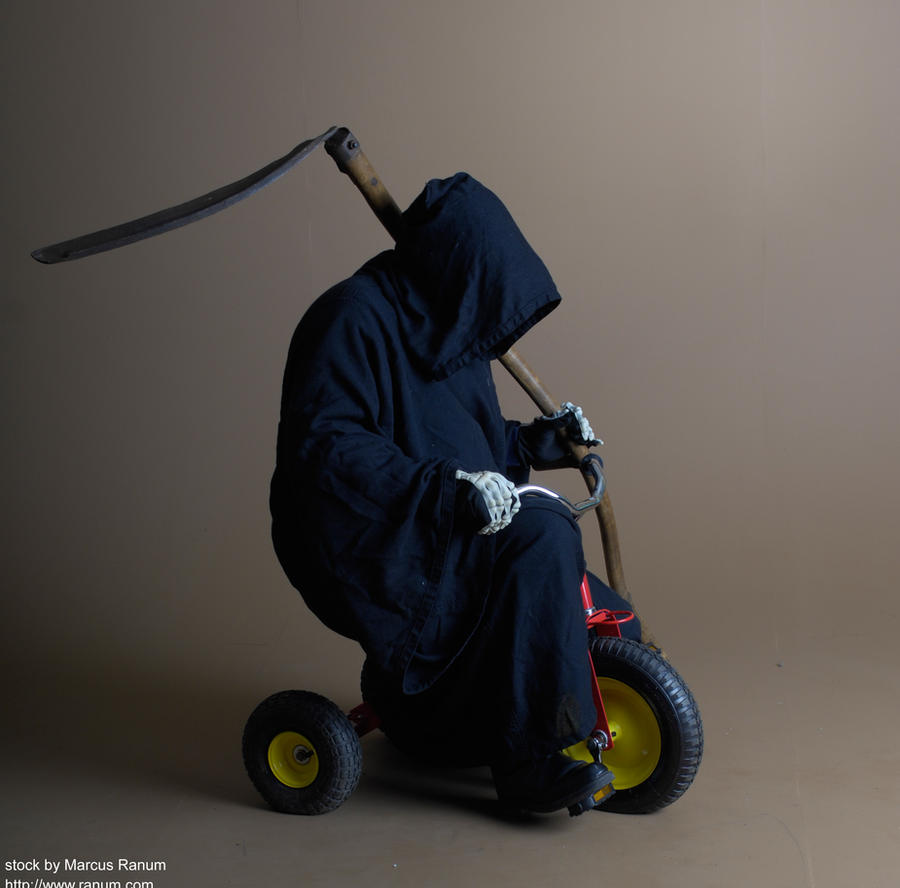I'm pretty convinced that I also manufactured a crisis by feeling up the nodes in my thigh so much that I bruised the area around my junk, causing me to worry about the "strange sensation" so much that I began to formulate my last goodbyes and figure out who I should give my surplus of Magic cards to (they aren't even legal to play anymore, but what did you expect from a young adult cancer survivor -- a current deck of Magic cards? What, am I made of money?). At the appointment, the PA noticed similar bruising in the nodes between my armpit and chest, which had previously been described to me as "bumpy." It was at this point I wondered if I could actually give myself cancer from checking so hard for signs of cancer. Or at the very least, a severe case of internal bleeding. Then I thought of the scenes from every medical drama in history where the doctor comes out and says very sadly, "I'm sorry, we can't stop the bleeding." And I think to myself, Wait, what? Don't you have like science and bags of other people's blood and stuff like that? I mean, wrap it in a t-shirt for God's sake. And I think of how much I would really disapprove of being the subject of one of those scenes because I pressed too hard while checking my nodes.
 |
| "I've taken out half of your bones and hung them on this pole here, and from these scans it looks like all of your blood has come with it. I've done everything I can." |
I did my X-Ray, blood work, and obligatory waiting room meditation before they called me back and stripped me down. I met a new PA student who checked me over and wanted to talk about what I was doing in life, and all the bizarrely existential things people say to one another with eerie lightness during an initial meeting, and all I could think about was how bumpy my nodes were. I stumbled through the conversation until the regular PA came in, who I'm very comfortable with and who has made this whole close to death thing a little less crappy. As it turns out, all my worrying was for nothing (isn't it always? Worrying is, by its very nature, useless). The X-Ray was clear, which meant my core was not filled with death, and the blood work confirmed that, yes, my blood was mostly made of blood, and not terrifying cancer Legos waiting to combine into a macabre pirate ship and sail right into my brain (though the castle Legos were my favorite [and I always made my mother buy them for Christmas and then put them together for me. It was obvious at an early age that I wasn't going to be an engineer.).].
 |
| I also have one of those Immunotherapy Krakens in my blood, so I guess I shouldn't be too worried about it. |
We talked for a while, because, even though we meet routinely at an appointed time to make certain I'm not actively dying, I like to think that she and I are friends. Then, suddenly, she informed me that I had graduated to six months. I was surprised, because I didn't think I'd be at six months for several years. "Nope," she said. "One year after diagnosis you go to four, and two years after you graduate to six." I went into this appointment convinced that I'd have to replay the scenario after my diagnosis where I went around telling everyone I was going to die, and that I loved them. And I came out of it not only with a clean bill of health, but with the added bonus of being considered healthy enough to last an extra two months on my own at a time.
As a young adult cancer survivor, I will never stop worrying about dying before I've lived long enough to leave my mark, to positively affect the world, and do whatever other things my mother would no doubt disapprove of. Every time I make the trip to the doctor, all of the emotions surrounding my initial diagnosis come flooding back. But in a strange, dissociated kind of way because the memories have faded, and all I really feel now is that I'm submerged underwater in a claustrophobic sea of negativity. The sensation causes me to find things that aren't there, and to worry myself into a bad place. I blame this partially on the come down from surviving cancer, the getting back to "normal." I have a wealth of experience with life and death and priorities and trivialities, intense emotions spawning from serious existential crisis, and the lessons that facing a terminal illness can teach you. But all of this fades when the tests start to come back clean, and distance begins to seep in between you and what almost prematurely ended you. In the future, I'd like to be more conscious of the divide, and learn how to better reconcile the urgency I used to feel with the humdrum of daily life. It's a lofty goal, though I'm sure it's possible. I'm not the only cancer survivor, stumbling through life trying to make sense of it all. I'm sure I'll get there. After all, I have at least six months to do it.
Photo credits: Top -- A doctor looks at an x-ray, by Ron Mahon




